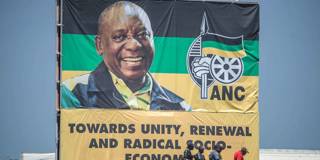After nearly a decade of Jacob Zuma's misrule, South Africans are eager for a leader who can reverse their country's political and economic fortunes. ANC President Cyril Ramaphosa may have the mandate to do so, but delivering change will require urgent measures to boost economic growth in the short term and long-term potential output.
JOHANNESBURG – Jacob Zuma has resigned as South Africa’s president – an inevitable move, following the African National Congress’ withdrawal of its support. Two decades after Nelson Mandela tried – and failed – to pass the presidency to Cyril Ramaphosa, the former deputy president and current ANC head has become South Africa’s leader. And the challenges that Ramaphosa will face are almost as daunting as those Mandela confronted in lifting his country from the ruins of apartheid.
Nearly a quarter-century ago, four years after Mandela was released from prison, South Africans celebrated the birth of an inclusive, constitutional state. During Zuma’s tenure, however, that euphoria evaporated. Amid allegations of endemic corruption, ratings downgrades, corporate malfeasance, and deepening malaise among state-owned enterprises (SOEs), South Africa’s regional and international standing weakened.
For many, Ramaphosa represents a return to national strength. He has vowed to restore credibility to the management of South Africa’s affairs, and to reinvigorate the values of democratic inclusion. His simple gestures, like starting meetings and rallies on time, are departures from Zuma’s more aloof approach.

JOHANNESBURG – Jacob Zuma has resigned as South Africa’s president – an inevitable move, following the African National Congress’ withdrawal of its support. Two decades after Nelson Mandela tried – and failed – to pass the presidency to Cyril Ramaphosa, the former deputy president and current ANC head has become South Africa’s leader. And the challenges that Ramaphosa will face are almost as daunting as those Mandela confronted in lifting his country from the ruins of apartheid.
Nearly a quarter-century ago, four years after Mandela was released from prison, South Africans celebrated the birth of an inclusive, constitutional state. During Zuma’s tenure, however, that euphoria evaporated. Amid allegations of endemic corruption, ratings downgrades, corporate malfeasance, and deepening malaise among state-owned enterprises (SOEs), South Africa’s regional and international standing weakened.
For many, Ramaphosa represents a return to national strength. He has vowed to restore credibility to the management of South Africa’s affairs, and to reinvigorate the values of democratic inclusion. His simple gestures, like starting meetings and rallies on time, are departures from Zuma’s more aloof approach.